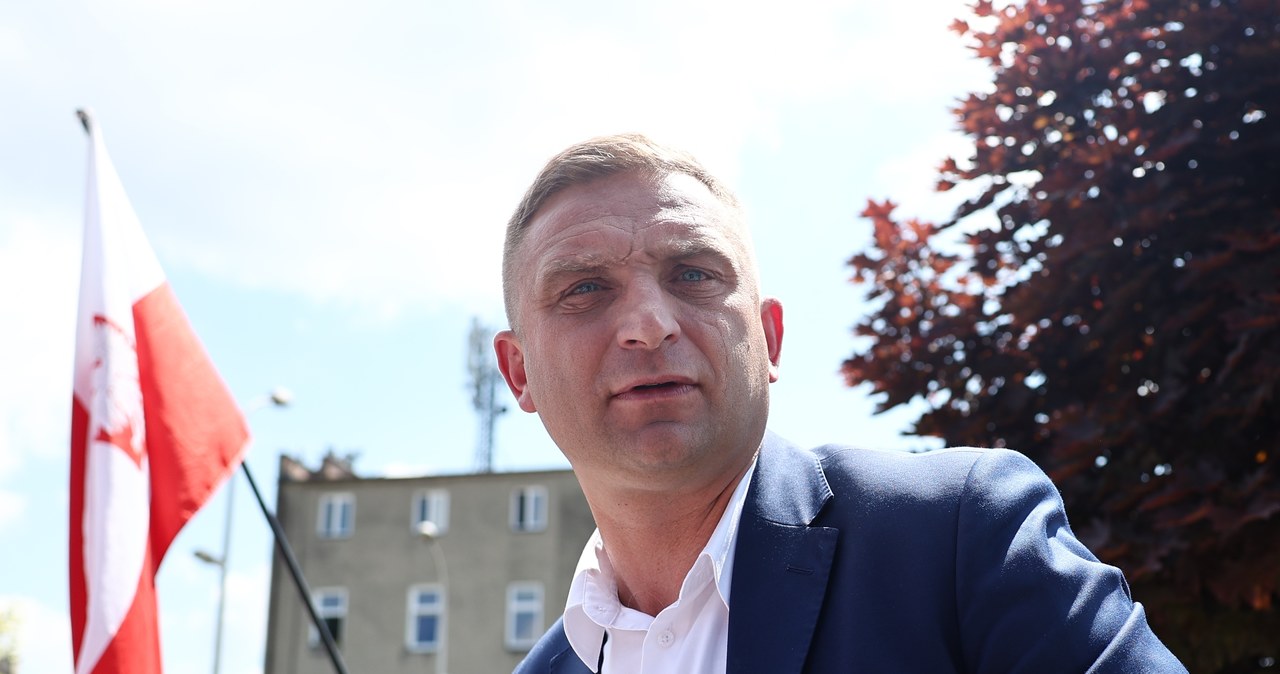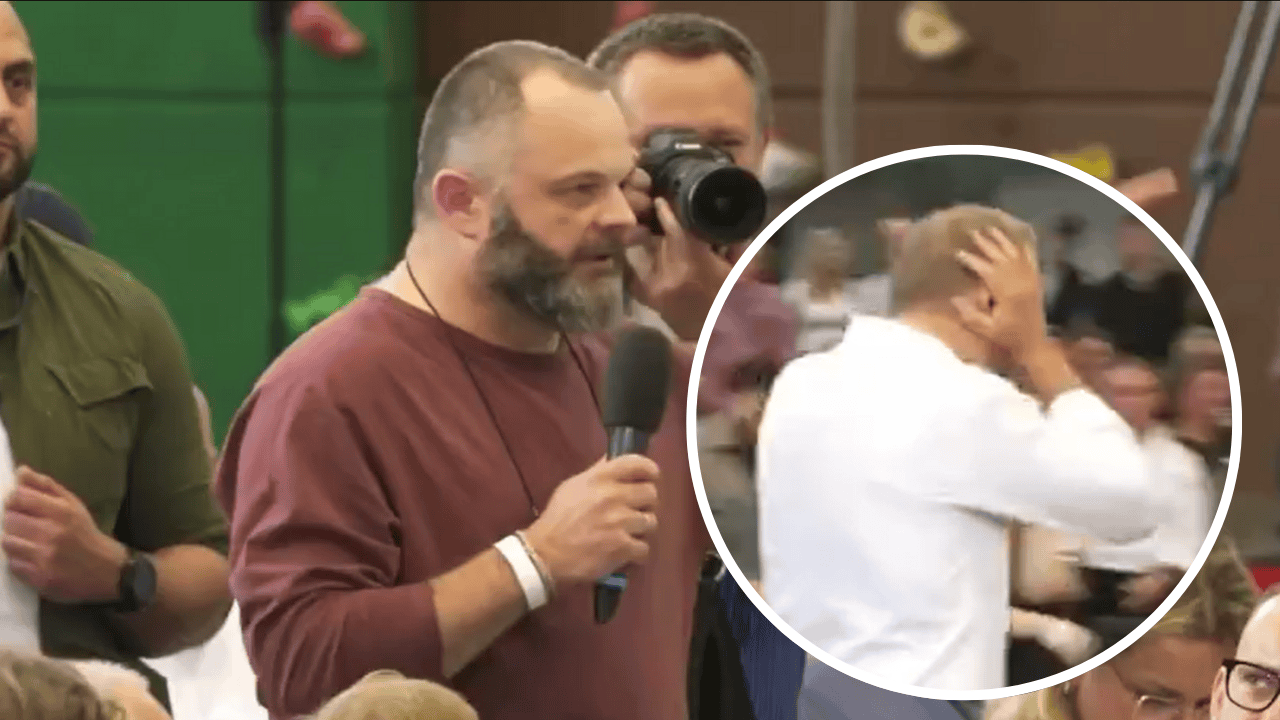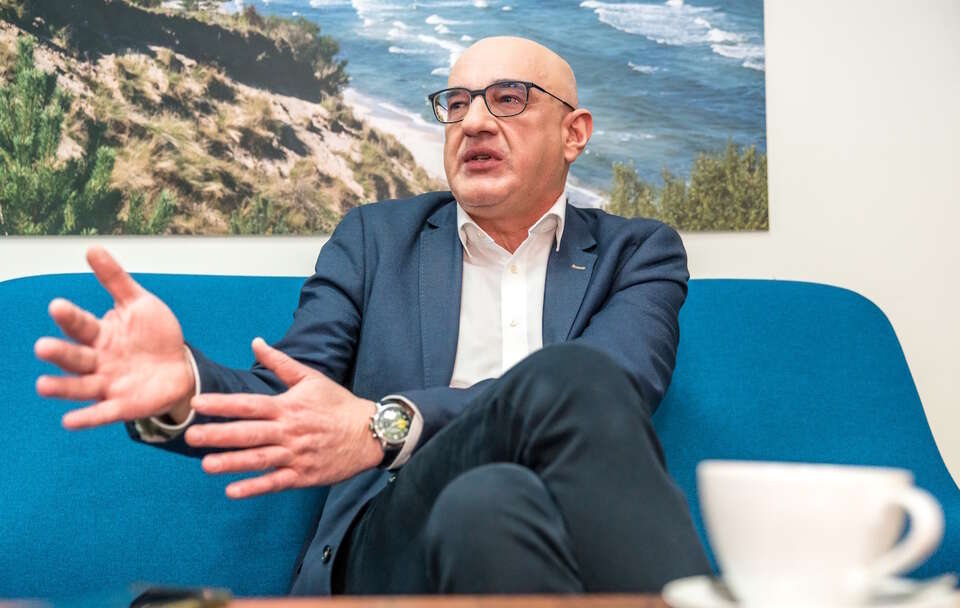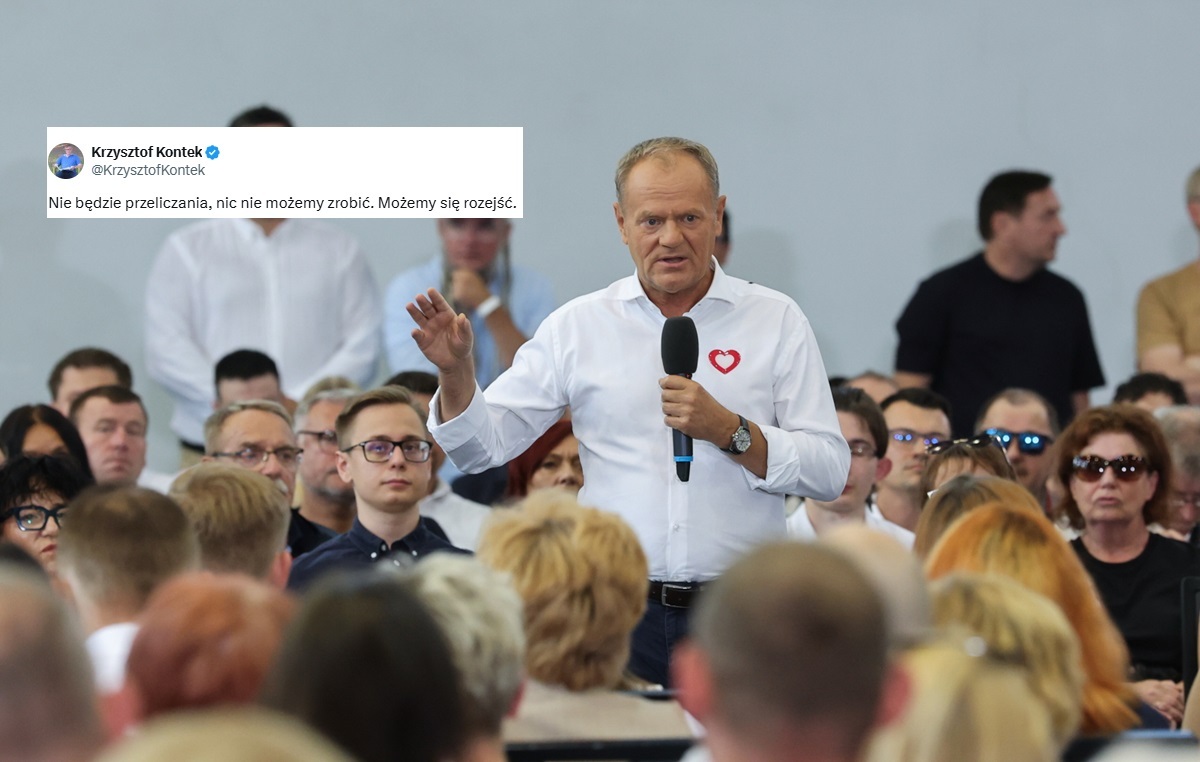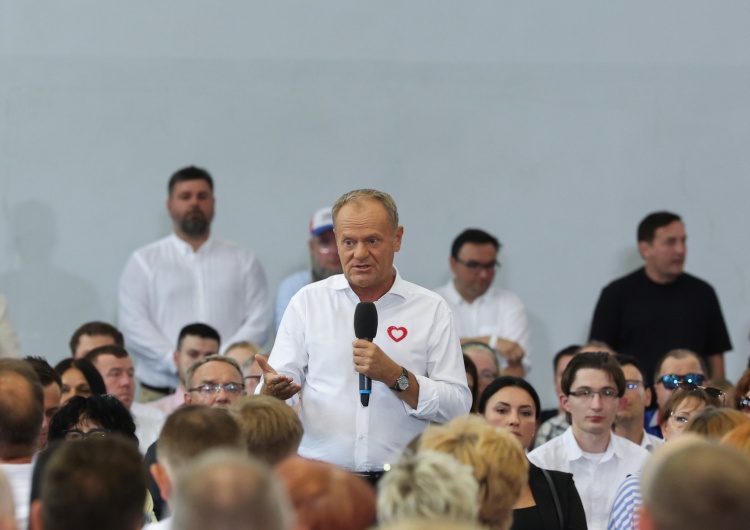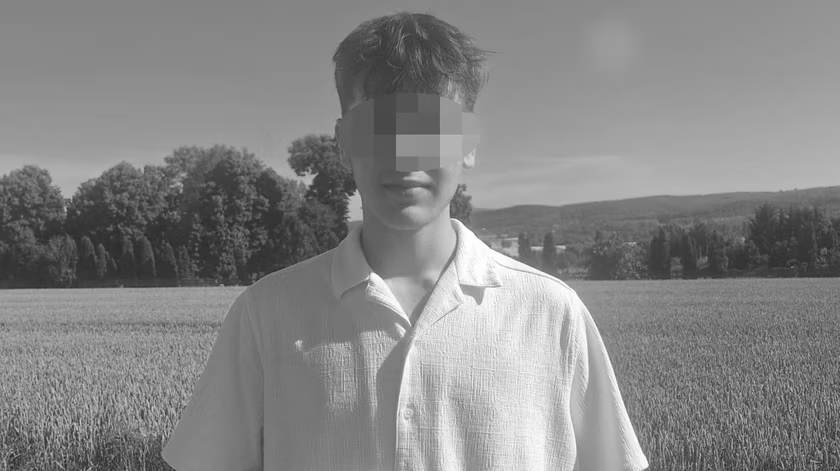Mass in the 1st year of the death of Fr Tadeusz Isakowicz-Zaleski
date:07 January 2025 Editor: Anna
On 9 January 2024 Fr Tadeusz Isakowicz-Zaleski, priest of the Archdiocese of Krakow, president of the Brat Albert Foundation, died.
The Holy Mass in the 1st year of the death of the Priest will be celebrated on 9 January 2025 at 7 p.m. at the Shrine of St. Andrew Bobola in Warsaw, 61 Rakowiecka Street.

Fr Tadeusz Isakowicz-Zaleski was born on 7 September 1956 in Krakow. His parents were philologist Jan Zaleski and Polish Armenianist Teresa Zaleska, from the home of Isakowicz. He was related to the penultimate Armenian Catholic Archbishop Lviv, prominent preacher and philanthropist Isaac Nicholas Isakovich (he was the great-great-grandson of the archbishop's brother) and Fr. prelate Leon Isakowicz (1883–1944), parish priest of the Armenian Catholic parish in Stanisławów.
After his graduation, he joined the Higher Seminary in Cracow. His seminary studies were abruptly interrupted by vocation to military service in a peculiar cleric unit in Brzeg. Upon his return to the seminary, he associated himself with the structures of the independent opposition formed in the second half of the 1970s. Even as a cleric, he was an active colporteur of the underground press and even a direct associate of writings appearing outside the scope of censorship: “Krzyża Nowohucki” and the Lublin quarterly of young Catholics “Meetings”.
From 1981 to 1983, Fr Isakowicz-Zaleski held diaconate practices in the parish in Chrzanów, Rajcza and Kraków–Wola Justowska. He received his priestly ordination on 22 May 1983 at the Wawel Cathedral at the hands of the Cardinals. Franciszek Macharski, who had large assurance in him and supported him. He was seconded to survey at the Armenian College to Rome, which was nevertheless prevented by the SB, by refusing a passport.
In 2001 he studied at the Pontifical Armenian College in Rome and was appointed by the then average of the faithful Armenian rites, Cardinal Joseph Glemp, Pastor of Armenians in the Archdiocese of Kraków. From 2002 to 2009 he was the pastor of Armenians in South Poland and from 2009 to 2017 he was the parish priest of Armenian Catholic parish of confederate St.
The priest founded the first community of people with disabilities in Krakow “Faith and Light”. Later, he created 1 of the most dynamic environments in Poland, creating centers for intellectual disabilities in the form of the Brat Albert Foundation. This foundation is based on the spirituality of Brother Albert, utilizing the prior Community experiences of the priest. He besides gained quite a few inspiration from the Lasek environment, which Tadeusz Zaleski was associated with almost from birth. There was his aunt, p. Miriam of the Franciscan Congregation of the Servants of the Cross.
"The foundation was born from the fundamental question of the parents of intellectually disabled people, what will happen to their children erstwhile they die," Fr Isakowicz-Zaleski said in an interview with KAI. The Foundation was conceived by Stanisław Pruszyński, who “was not truly the parent of a disabled person, but came from Volyn, had war experiences, was injured and was disabled for the remainder of his life. He from this Volyn was convinced that the home for people with disabilities must be in a beautiful environment of nature, outside the city. He said he needed a home with a garden. The 2 of us started riding all over Poland and looking for specified a house.” It became a manor house, which is simply a gift of the resident Radwanowice – Zofia Tetelowska.
As a beginner priest, he was active with underground “Solidarity” and pastoral ministry in this field. He worked with Fr Kazimierz Jancarz. Severely beaten by SB officers in 1985, as detailed in the 2006 documentary "Terrorize the Priest" [video below]. He did not yield to pressure, he did not get intimidated, and in 1988 he participated as a minister of the workers in the strike in Huta im Lenin.
He's the author of the loud book The Prince to Security. The book by Fr Tadeusz Isakowicz-Zaleski is the consequence of investigation conducted by the author in IPN archives concerning the surveillance of the Kraków Church by UB and SB. Its aim is to describe and realize the attitude of the Catholic clergy towards the communist safety activities. These activities were different during different periods of the PRL. From intimidation, threats, or blackmail, they went on to more subtle methods, trying to affect clergymen in cooperation through talks, persuasion, promises of various life facilities. The vast majority of priests could defy both intimidation and temptation. Among those who agreed to cooperate, many were able to break up. It is the strong voice of a investigator and at the same time a witness who seeks the fact about those hard times.
For many years he was active in the fight to commemorate the victims of the genocide of Poles in the Kresach. He was president of the “Memoria et Veritas” Foundation established by him and organizer of yearly school competitions of cognition about Kresach and chair of the honor committee of building the monument “Rozez Wołyńska”. He besides supported the “Community and Memory” Association action under the heading “Volyn for Powązki”. He participated in commemorations, conferences, demonstrations. He repeatedly made appeals to the Polish Episcopal and State authorities. He was besides a valued pastor of families surviving from the genocide in Volyn.
A spokesperson for victims who, as children, have suffered harm to sexual abuse by clergymen. An uncompromising defender of the injured, advocate for the self-cleaning of the clergy, and proclaimer of the truth, uncomfortable for many.
He was honoured, among others, with the Commander's Cross of the Order of Poloniae Revival of Poland (2006), the Knight's Cross of the Order of Poloniae Revival of Poland (1999), the Cross of Freedom and Solidarity (2016), the Centennial Medal of Recovered independency (2019), the Medal of Pro Bono Poloniae (2019).
for: PAP, KAI, Press Office of the Archdiocese of Krakow
After his graduation, he joined the Higher Seminary in Cracow. His seminary studies were abruptly interrupted by vocation to military service in a peculiar cleric unit in Brzeg. Upon his return to the seminary, he associated himself with the structures of the independent opposition formed in the second half of the 1970s. Even as a cleric, he was an active colporteur of the underground press and even a direct associate of writings appearing outside the scope of censorship: “Krzyża Nowohucki” and the Lublin quarterly of young Catholics “Meetings”.
From 1981 to 1983, Fr Isakowicz-Zaleski held diaconate practices in the parish in Chrzanów, Rajcza and Kraków–Wola Justowska. He received his priestly ordination on 22 May 1983 at the Wawel Cathedral at the hands of the Cardinals. Franciszek Macharski, who had large assurance in him and supported him. He was seconded to survey at the Armenian College to Rome, which was nevertheless prevented by the SB, by refusing a passport.
In 2001 he studied at the Pontifical Armenian College in Rome and was appointed by the then average of the faithful Armenian rites, Cardinal Joseph Glemp, Pastor of Armenians in the Archdiocese of Kraków. From 2002 to 2009 he was the pastor of Armenians in South Poland and from 2009 to 2017 he was the parish priest of Armenian Catholic parish of confederate St.
The priest founded the first community of people with disabilities in Krakow “Faith and Light”. Later, he created 1 of the most dynamic environments in Poland, creating centers for intellectual disabilities in the form of the Brat Albert Foundation. This foundation is based on the spirituality of Brother Albert, utilizing the prior Community experiences of the priest. He besides gained quite a few inspiration from the Lasek environment, which Tadeusz Zaleski was associated with almost from birth. There was his aunt, p. Miriam of the Franciscan Congregation of the Servants of the Cross.
"The foundation was born from the fundamental question of the parents of intellectually disabled people, what will happen to their children erstwhile they die," Fr Isakowicz-Zaleski said in an interview with KAI. The Foundation was conceived by Stanisław Pruszyński, who “was not truly the parent of a disabled person, but came from Volyn, had war experiences, was injured and was disabled for the remainder of his life. He from this Volyn was convinced that the home for people with disabilities must be in a beautiful environment of nature, outside the city. He said he needed a home with a garden. The 2 of us started riding all over Poland and looking for specified a house.” It became a manor house, which is simply a gift of the resident Radwanowice – Zofia Tetelowska.
As a beginner priest, he was active with underground “Solidarity” and pastoral ministry in this field. He worked with Fr Kazimierz Jancarz. Severely beaten by SB officers in 1985, as detailed in the 2006 documentary "Terrorize the Priest" [video below]. He did not yield to pressure, he did not get intimidated, and in 1988 he participated as a minister of the workers in the strike in Huta im Lenin.
He's the author of the loud book The Prince to Security. The book by Fr Tadeusz Isakowicz-Zaleski is the consequence of investigation conducted by the author in IPN archives concerning the surveillance of the Kraków Church by UB and SB. Its aim is to describe and realize the attitude of the Catholic clergy towards the communist safety activities. These activities were different during different periods of the PRL. From intimidation, threats, or blackmail, they went on to more subtle methods, trying to affect clergymen in cooperation through talks, persuasion, promises of various life facilities. The vast majority of priests could defy both intimidation and temptation. Among those who agreed to cooperate, many were able to break up. It is the strong voice of a investigator and at the same time a witness who seeks the fact about those hard times.
For many years he was active in the fight to commemorate the victims of the genocide of Poles in the Kresach. He was president of the “Memoria et Veritas” Foundation established by him and organizer of yearly school competitions of cognition about Kresach and chair of the honor committee of building the monument “Rozez Wołyńska”. He besides supported the “Community and Memory” Association action under the heading “Volyn for Powązki”. He participated in commemorations, conferences, demonstrations. He repeatedly made appeals to the Polish Episcopal and State authorities. He was besides a valued pastor of families surviving from the genocide in Volyn.
A spokesperson for victims who, as children, have suffered harm to sexual abuse by clergymen. An uncompromising defender of the injured, advocate for the self-cleaning of the clergy, and proclaimer of the truth, uncomfortable for many.
He was honoured, among others, with the Commander's Cross of the Order of Poloniae Revival of Poland (2006), the Knight's Cross of the Order of Poloniae Revival of Poland (1999), the Cross of Freedom and Solidarity (2016), the Centennial Medal of Recovered independency (2019), the Medal of Pro Bono Poloniae (2019).
for: PAP, KAI, Press Office of the Archdiocese of Krakow
Film material 1 :


